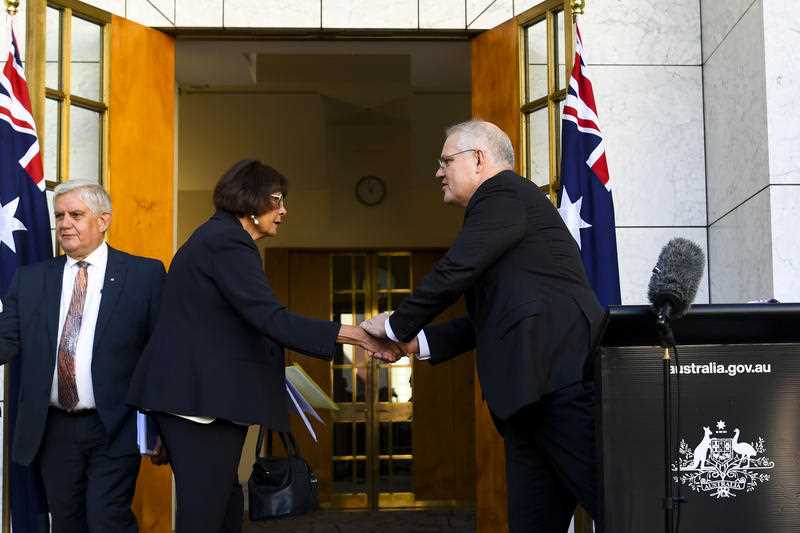Pat Turner’s mum died waiting on recognition and redress for Stolen Generations forcibly taken from Australia’s territories.
But the Indigenous health leader has been buoyed by a plan to provide survivors removed from their families across the Northern Territory, ACT and Jervis Bay Territory with one-off $75,000 payments.
They are part of a $378.6 million redress scheme, including additional $7000 payments for individual trauma support.
Each survivor will also be given the chance to detail the consequences of their removal in a confidential session with a senior government official.
People will receive an apology in person or in writing.
Federal redress payment are among $1.1 billion of measures aimed at closing the health and welfare gap between Indigenous and non-Indigenous Australians.
Ms Turner, an Alice Springs born Gurdanji-Arrernte woman, now wants Queensland and Western Australia to join other states and the Commonwealth in paying reparations to survivors.
“Our people have waited a long time for compensation for Stolen Generations survivors,” the National Aboriginal Community Controlled Health Organisation chief executive told reporters today, Thursday 5 August.
“It is important recognition. I also know, however, that there are many survivors that have died waiting for this recognition, my mum being one of them.”
She said “time’s up” for the WA and Queensland governments to follow suit.
Prime Minister Scott Morrison told federal parliament the Stolen Generations were “a shameful chapter in our national story”.
“We have already confronted it with the (2008) national apology. But our deeds must continue to match our words,” he said.
Decades-long forced assimilation policies meant Indigenous Australians Minister Ken Wyatt’s mother did not see her siblings until she was in her 20s.
“You can’t undo the emotional impact that that has,” Mr Wyatt said.
Additional funding includes $254.4 million for Aboriginal-controlled community health organisations, $160 million to support early years child development and $66 million for alcohol and drug treatment services.
Mr Morrison acknowledged Australia was not where it should be in closing the gap.
“We don’t expect to see clear improvements immediately. But I think the approach we’ve got now gives us the best chance,” he said.
“The ultimate test of our efforts is that every Aboriginal and Torres Strait Islander boy or girl can grow up with the same opportunities and the same expectations as any other Australian child.”
The commitments build on a national agreement with 51 Indigenous organisations around 17 health, justice and socio-economic targets.
Just three are on track. Targets including on reducing suicide rates, closing the life expectancy gap, and keeping children out of child protection and adults out of jail, are set to be missed.
Labor leader Anthony Albanese said it was a misnomer to call it a gap.
“A gap is something that is easily crossed or closed. The unflinching litany of lopsided statistics before us make it clear that this is a chasm.”
Stolen Generations survivors can apply for federal compensation from March 1 next year until February 2026.
Indigenous people who were under the age of 18 when they were taken from the NT and ACT, before the territories became self-governing, as well as Jervis Bay, are eligible.
Families of survivors who die between the scheme’s announcement and applications opening next year can lodge a claim on behalf of their loved ones.
By Georgie Moore in Canberra, AAP
Get all the latest Canberra news, sport, entertainment, lifestyle, competitions and more delivered straight to your inbox with the Canberra Daily Daily Newsletter. Sign up here.
For more National:



